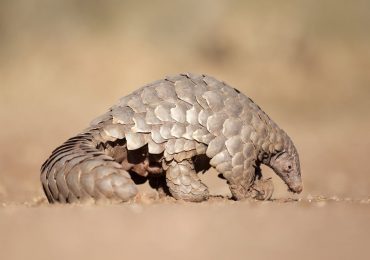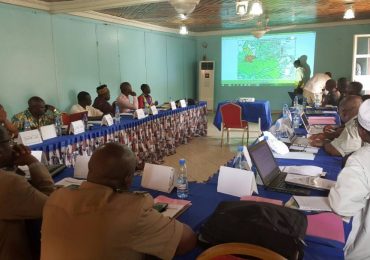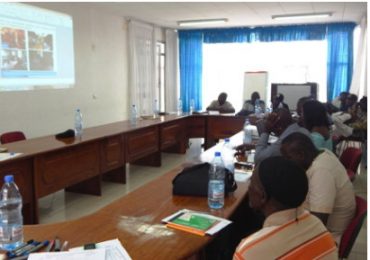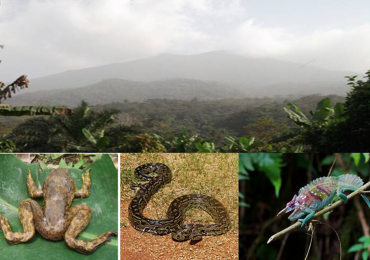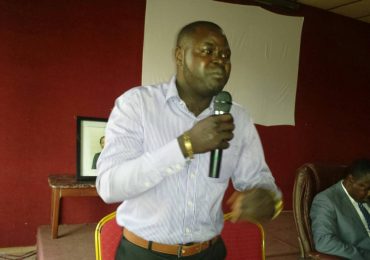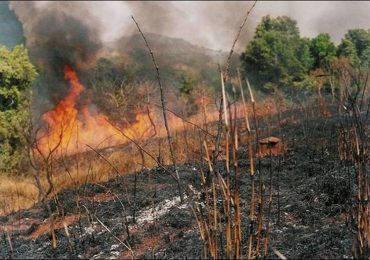Eco-guards working the Korup National Park in the Southwest Region have cried out to government to come to their rescue without a delay. The forest guards say government is not treating them fairly after giving them the best training but virtually threw them to the wolves as they patrol with one Second World War rifle.
By Ndimuh Bertrand Shancho
Huddled at the Chimpanzee Camp after their daily routine of checking illegal activities and ensuring the protection of the bio-diversity of the park, the eco-guards say their job is no easy one and limited equipment only compounds it.
“As patrol guards, we are at a sort of war front and can be attacked at any time. Poachers are our enemy but most of them like the elephant hunters, have very sophisticated guns and are brutal. But see us, a group of persons on patrol in a class ‘A’ park in Cameroon with one gun produced in 1939 during the Second World War. How do we face such a situation? Look at the recent elephant killings in the Bouba Ndjida National Park; if eco-guards were well armed, such destruction would not have taken place. The government has given us the best of training but has failed to equip us; you can’t send somebody to the war from without weapons!” say the eco-guards who asked not to be named.
“We leave every day for patrol at 8 a.m and come back only in the evening, on some days even as late as 9 pm and one of our greatest challenges remains the lack of equipment,” they remark.
The rangers, however, appreciate the efforts the government is making with its counterpart of Germany through KFW in providing them with basic equipment like cyber trackers, GPS, field bags and tents to facilitate patrol.
They, however, say the Cameroonian government being the primary protector of forest resources is supposed to do everything to ameliorate their living standard.
They frown at discrimination directed at some employees in the nation’s paramilitary services.
High Risk
“If you look in Cameroon today amongst the paramilitary officers, forest guards are the only ones without a status; custom officers, prison guards and police officers and all the others have a permanent status which we don’t have. You cannot take a uniform person like us who are at the ‘war front’ and place under public service like any other normal worker. In Central African Republic for example, forest guards have a permanent status which backs them up,” the forest guards said.
They say working in the national park is very risky.
“We are a pleading with the government to look into our problem of risk allowance as well,” said the eco-guards.
Another problem, which the game rangers complain about and say plagues most if not all protected areas in the country, has to do with the limited number of guards allocated per park.
According to the forest guards, Korup National Park alone, perhaps one of the largest protected areas in Cameroon, requires at least 200 guards to effectively cover the park, there are only 28 guards dedicated to the park.
The foresters are appealing to the Minister of Forestry and Wildlife to help transmit their message to the head of state so that action can be taken.
Massacre
One of the longest-serving forest guards at the Korup National Park recounts his most challenging experiences within the last seven years.
“One of my greatest challenging moments in this park was an incident in August 2009 where a poacher resisted arrest and released a bullet at one of my colleagues, but this colleague was smart enough to escape the bullet. When the other colleague on patrol witnessed what happened, he released his bullet as well which caught the poacher, who was later taken to the hospital for treatment. When this news got to the villagers, they thought the poacher was killed and went on rampage and burnt down our camps,” the forest guard told The Green Vision.
He said a year later, there was a shocking invasion by poachers in the park where nine elephants were killed within two months.
“When this got to us as well trained officers, we went investigating and finally arrested the victim; got the trophies and his gun. He was conveyed to Mundemba, judged and sentenced to five years in prison,” the eco-guard said.
He said in 2013, his colleagues on patrol also reported discovering an elephant carcass with its tusks removed and after examination realised that the elephant was shot and only died later.
The forester said they have noticed during patrol that there is more hunting pressure on the forest cluster linked to Nigeria.
“This is due to high demands for bush meat in Nigeria and the high price for the commodity,” he says.
Despite the rather gloomy picture painted by the eco-guards, they said the Park service has developed better strategies to mitigate any further killings within the park by ensuring that the eco-guards are in the park all the time.
“At first, all the eco-guards went on patrol and stayed for some time before going again but it seemed the poachers were monitoring our activities, so the Park service has decided that the presence of the guards must be felt in the park at all times,” one of the guards noted.
This strategy put in place over three months ago, according to the forest officers, has confused the poachers who don’t know when eco-guards are not in the forest and has greatly reduced wildlife threats in the Korup National Park.
“I think this strategy is already yielding fruits; we have been here for three months; no gun shot. Even you (the reporter), who has been in this forest for two days can attest to this. Have you heard any gunshot? This was not the case before,” one of the forest guards said.
The five forest guards said they are doing their best with the limited means to reduce wildlife threats to the barest minimum.
They said collaboration from the local communities through constantly reporting illegal hunters to the Park service is greatly easing their work.



